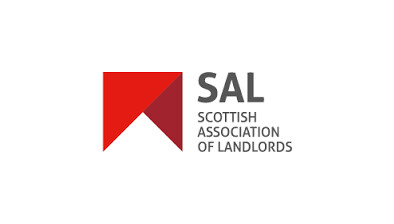Landlords blame drop of 22,000 homes to rent on government policy and rhetoric

John Blackwood
There could be around 22,000 fewer homes available to rent in Scotland at the start of 2024 than just a year ago, according to a survey by the largest landlord membership body in the country.
A survey of its members by the Scottish Association of Landlords (SAL) also found the biggest reasons for the drop are perceived hostility towards landlords from government and politicians along with concerns over proposals and increasing regulation in the sector.
The survey of SAL members was conducted in December 2023 to find out about the size of their rental property portfolios and how this has changed or will change over time. Many of the survey questions were repeats of questions asked in a previous survey in December 2022.
Respondents had already withdrawn an average of 6.4% of their properties from the sector during 2023. Extrapolating this figure across the whole of the private rented sector (PRS) in Scotland suggests that around 21,760 homes (6.4% of 340,000 homes) could have been lost from the sector in the last year but are not yet reflected in landlord registration figures which is based on a three-year renewal cycle.
SAL believes the drop in the number of properties available is the single biggest factor contributing to rising rent levels in the PRS and is a major factor in Scotland’s ongoing housing crisis.
The survey also points to a worsening situation from last year and this is likely to continue into the future with a significant increase in the proportion of landlords planning to reduce their portfolio size in the next five years. 56% of respondents are now planning to reduce their portfolio size (in 2022 it was 44%) while only 9% are now planning to increase their portfolio size (this time last year it was 13%).
Commenting on the figures, John Blackwood, the chief executive of SAL, said: “Landlords have been warning for the past few years that the combination of anti-landlord rhetoric along with short-term, ineffective policies are harming investment in private rented housing in Scotland.
“These chickens are now coming home to roost as landlords lose confidence and are choosing to exit the sector. This is reducing supply and driving up costs for tenants and causing significant harm.
“We have already seen a number of councils point to landlord exits as a reason for increased pressure on their own housing stock and this will only continue in the future.
“Instead of these short-term measures, the Scottish Government must come together with all parts of the sector to encourage investment. We need to see a lot more social housing in Scotland, as well as new builds and investment in flexible, high-quality privately rented accommodation.”
A Scottish Government spokesperson said: “This survey of a small number of landlords is at odds with what the latest Scottish Landlord Register data show, where the number of registered properties for rent in Scotland between August 2022 (339,632) and January 2024 (345,374) has increased by 1.7%.
“Private renting is a very dynamic sector and has always been characterised by some landlords leaving and others entering.
“Our emergency legislation has protected tenants at a time when private rents have been rising steeply across the UK. Since April 1 2023, private landlords have been able to increase a tenant’s rent in-tenancy by up to 3% or can apply to Rent Service Scotland for approval of an increase of up to 6% in specific circumstances.
“The emergency measures also included safeguards for those landlords who may be impacted by the cost-of-living crisis.”






